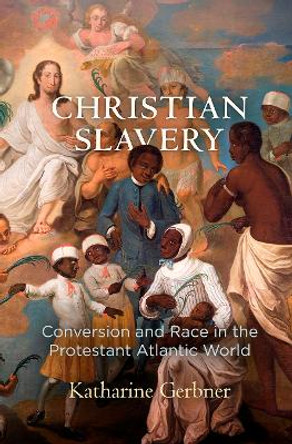Beginning in 1701, missionary-minded Anglicans launched one of the earliest and most sustained efforts to Christianize the enslaved people of Britain's colonies. This book offers a new assessment of the Society for the Propagation of the Gospel in Foreign Parts, which played a foundational role in colonial religious history and the history of British missionary activity. Based on a belief in the essential unity of humankind, the Society's missionaries advocated for the conversion and better treatment of enslaved people. Yet, only a minority of enslaved people embraced Anglicanism, while a majority rejected it. This book explores these missionary encounters in colonial America and around the Atlantic world. Many in the SPG believed that divine and human law sanctioned slavery, but Anglican attitudes were not static. While important early figures saw slavery as troubling, the Society increasingly comfortable with slavery, allied with slaveholders, and willing to embrace slavery as a missionary tool. The SPG owned hundreds of enslaved people on its Codrington plantation in Barbados, where it hoped to simultaneously make profits and save souls. In Africa, the SPG cooperated with English slave traders in establishing a mission at Cape Coast Castle, at the heart of the trans-Atlantic slave trade. Through its texts and practices, the SPG provided important intellectual, political, and moral support for slaveholding around the British empire. The rise of antislavery sentiment challenged the principles that had long underpinned missionary Anglicanism's program. This work closes with a reexamination of the SPG's place in debates about abolishing the slave trade and emancipating enslaved people. While some accounts have stressed the reformism and anti-slave trade sentiments of SPG supporters, here a reevaluation reveals the Society's commitment to slavery, how the Society's history was used to defend slaveholding, and how antislavery activists viewed the Society as a significant institutional opponent.
About the AuthorAssistant Professor of History, Temple University
ReviewsMastering Christianity examines why Anglican authorities came (belatedly) to the missionary impulse, how they sought to put this desire into practice, and why they proved so ineffectual, at least in regard to the conversion of the Africans who lived under British rule. This is a fascinating, if also somewhat depressing, study of an institution whose religious and moral principles, and potential for doing good, were fatally compromised by its social and political ties and ambitions. * Robert Olwell, University of Texas at Austin, The American Historical Review *
Book InformationISBN 9780199773961
Author Travis GlassonFormat Hardback
Page Count 328
Imprint Oxford University Press IncPublisher Oxford University Press Inc
Weight(grams) 567g
Dimensions(mm) 239mm * 160mm * 28mm





